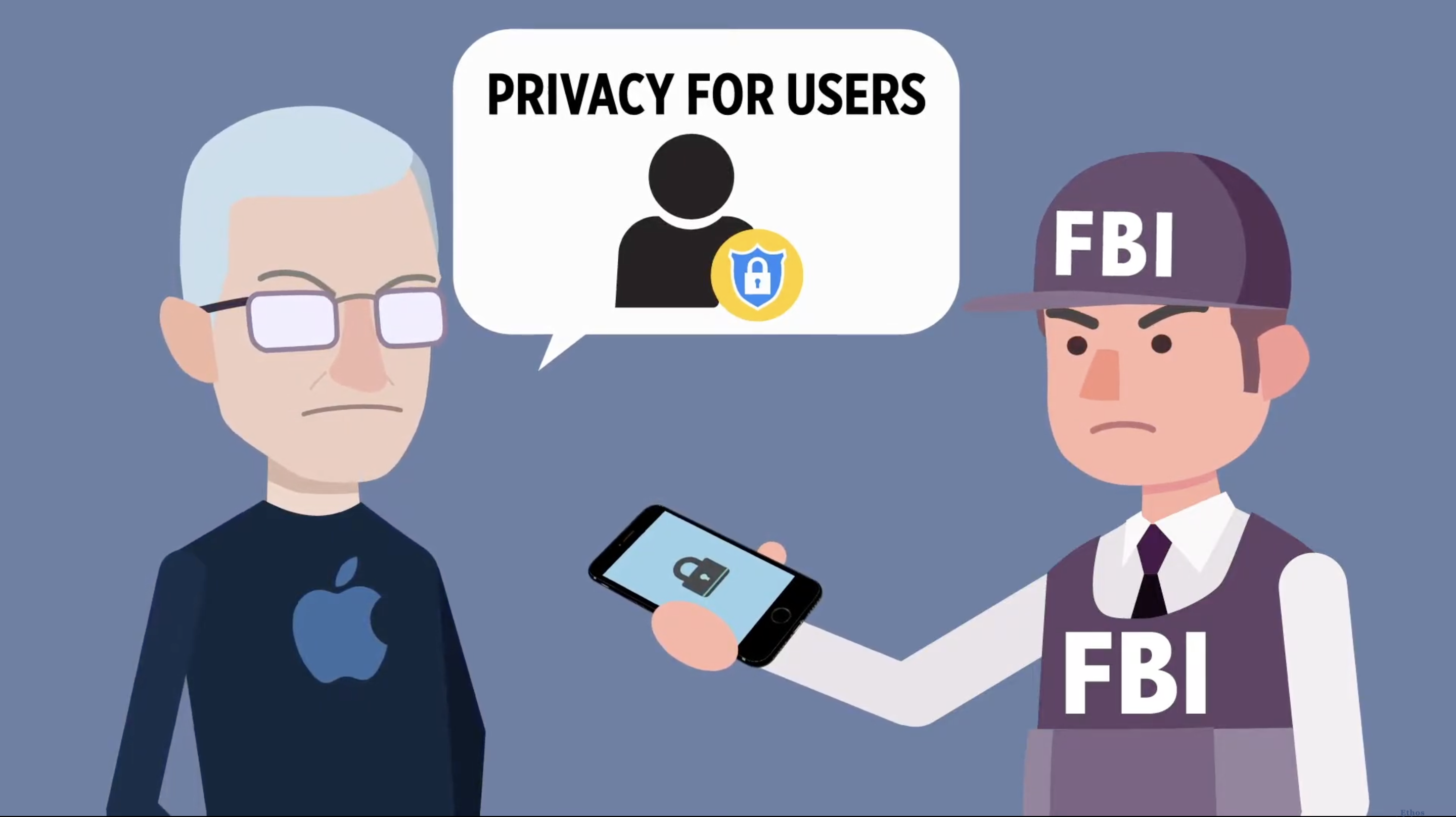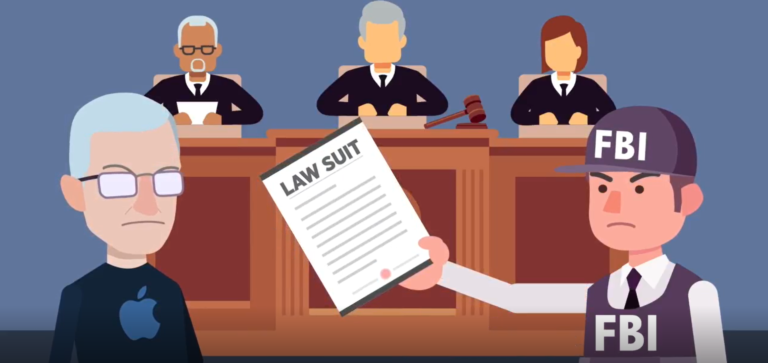Transcript
In December 2015, unfortunately, there was a terrorist attack in San Bernardino, California. The two attackers were eventually killed and the authorities recovered an Apple iPhone from one of the attackers.
The FBI, however, were unable to access the iPhone because it was encrypted, which meant there was a security password needed to enter the phone. The problem the FBI faced was that if they entered the wrong password a certain number of times the information on the phone would be erased. So the FBI went to Apple and asked them to decrypt the phone allowing the FBI to access its information.
From the FBI’s perspective, they thought that this was important because the information was necessary for their investigation, and could even prevent a possible, future terrorist attack. From Apple’s perspective, they thought that this could potentially lead to what lawyers call a “slippery slope”—basically a precedent that might ultimately lead to greater intrusion and other privacy issues for its users. As a result, Apple rejected the FBI’s request to provide access to the locked iPhone.
This was so important to the FBI that they went to court to try and compel Apple to provide access to the phone. After some posturing, however, the case was never tried. And so we don’t really know the exact legal answer to the legal question of whether the security risk was enough to compel Apple to decrypt the phone’s security. But this story raises a lot of interesting questions for us to consider
Discussion Questions
- What do you think about Apple’s decision to not decrypt the iPhone for the FBI? Does that make you more or less likely to purchase Apple products?
- Who do you trust more with your data? Private companies, the government, both or neither?
How much control over your private data do you think you have? Do you see things improving or getting worse in the future?
Additional Readings
- The Apple-FBI Debate Over Encryption. (2016). NPR. Retrieved from: https://www.npr.org/series/469827708/the-apple-fbi-debate-over-encryption
- Kakutani, M. (2017). Why ‘1984’ Is a 2017 Must Read. The New York Times. Retrieved from https://www.nytimes.com/2017/01/26/books/why-1984-is-a-2017-must-read.html
- Harrington, M. (2017). Survey: People’s Trust Has Declined in Business, Media, Government, and NGOs. Harvard Business Review. Retrieved from https://hbr.org/2017/01/survey-peoples-trust-has-declined-in-business-media-government-and-ngos
- DNA From Genealogy Site Used to Catch Suspected Golden State Killer. (2018). CBC News. Retrieved from https://www.cbc.ca/news/world/dna-from-genealogy-site-used-to-catch-suspected-golden-state-killer-1.4637726
- Kerry, C. F. (2018). Why Protecting Privacy is a Losing Game Today – And How To Change The Game. The Brookings Institution. https://www.brookings.edu/research/why-protecting-privacy-is-a-losing-game-today-and-how-to-change-the-game/
- Hill, S. (2019). Should Big Tech Own Our Personal Data? Wired Magazine. Retrieved from https://www.wired.com/story/should-big-tech-own-our-personal-data/
- Heller, N. (2018). We May Own Our Data, But Facebook Has a Duty To Protect It. The New Yorker. Retrieved from https://www.newyorker.com/tech/annals-of-technology/we-may-own-our-data-but-facebook-has-a-duty-to-protect-it
- Kezer, M., Sevi, B., Cemalcilar, Z., & Baruh, L. (2016). Age Differences in Privacy Attitudes, Literacy and Privacy Management on Facebook. Cyberpsychology: Journal of Psychosocial Research on Cyberspace, 10(1). Retrieved from https://cyberpsychology.eu/article/view/6182/5912
- Limitone, J. (2016). Fmr. NSA, CIA Chief Hayden Sides with Apple Over Feds. Fox Business. Retrieved from https://www.foxbusiness.com/features/fmr-nsa-cia-chief-hayden-sides-with-apple-over-feds


